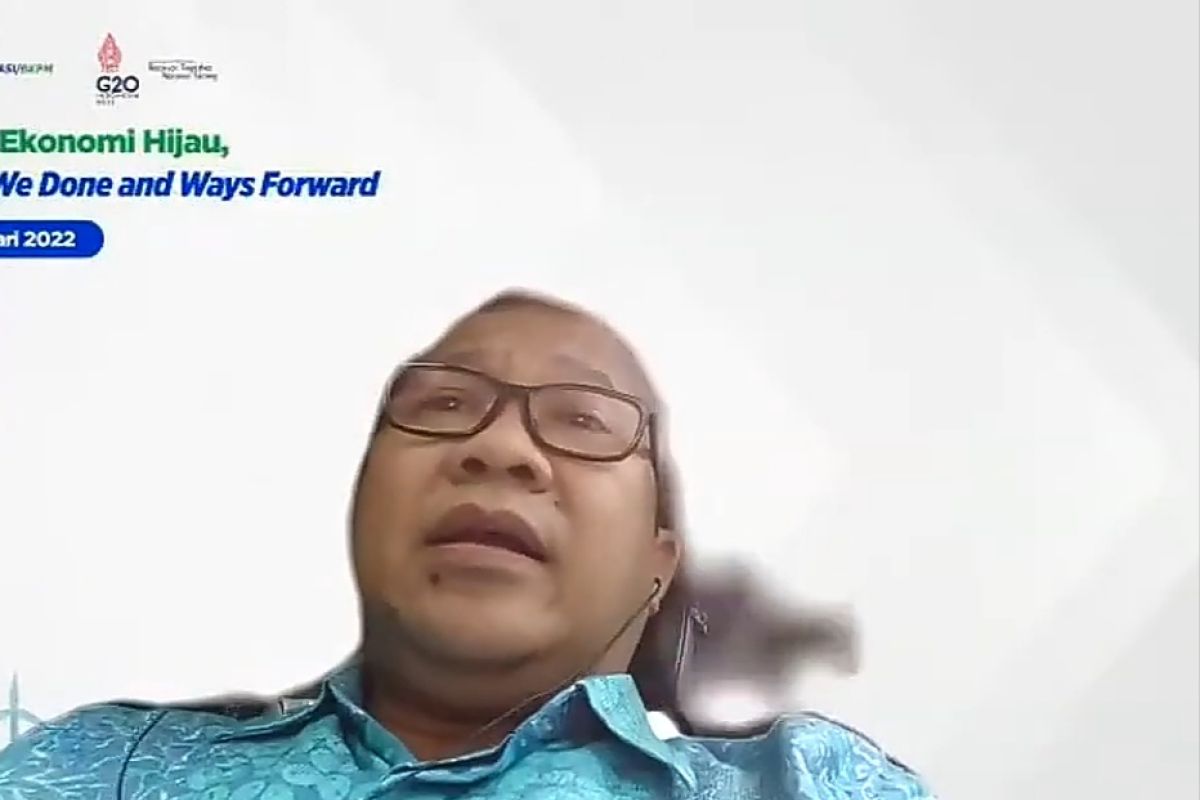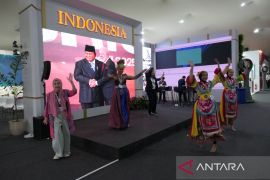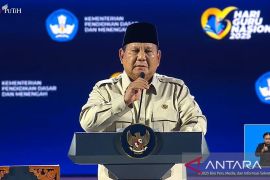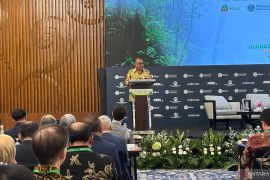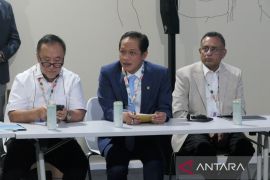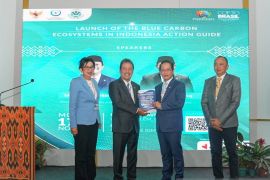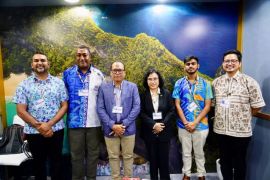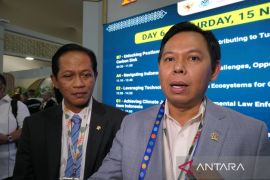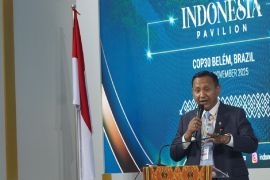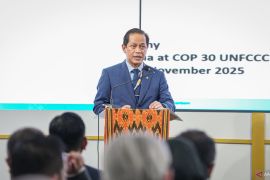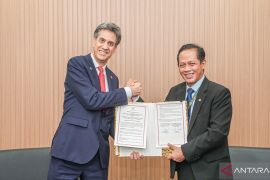That is 27 percent of the state budget. We do budget packing, we also give budgeting to local governmentsJakarta (ANTARA) - Indonesia needs around Rp300 trillion in funding to deal with climate change, head of the Financial Sector Policy Center of the Fiscal Policy Agency (BKF), Adi Budiarso, has said.
"That is 27 percent of the state budget. We do budget packing, we also give budgeting to local governments," he informed at the "Transition to a Green Economy" webinar on Thursday.
According to Budiarso, 33 percent of the Rp300 trillion funding will be met by the private sector and the rest will be sought from philanthropists and foreign investors.
If people do not start investing in the green economy, Indonesia will have to deal with the impact of climate change that can trigger disasters, with rehabilitation funds reaching up to Rp35 trillion per year, he projected.
"In the midst of a pandemic, 4 percent of the GDP (gross domestic product) comes out in just one year to deal with a health disaster," he added.
To tackle climate change, Indonesia is also participating in the Nationally Determined Contribution (NDC) commitment to cut carbon emissions by 29 percent through its own efforts and 41 percent with international assistance, he noted.
Related news: Indonesia must model climate change cooperation: Amin
There are five sectors whose carbon emissions will be reduced, namely forestry, energy, transportation, waste, and agriculture, Budiarso said.
"Energy and transportation, in terms of cost, are enormous; the cost is around Rp300 trillion per year for the investment needs," he highlighted.
Meanwhile, climate change director general Laksmi Dhewanti had stated earlier that the Climate Change Directorate General at the Environment and Forestry Ministry is seeking to establish five thousand more climate villages by 2022.
"We expect collaboration from various stakeholders, not just the internal units within the ministry but also from various other ministries and institutions to implement climate change adaptation agendas through the Climate Village Program," she said.
The Climate Village (ProKlim) program is an effort to bolster the involvement of the public and stakeholders in reducing greenhouse gas emissions, she added.
The program also aims to strengthen the mitigation and adaptation capacity to handle the impacts of climate change in accordance with each region's conditions, she said.
Related news: Burnt forest, land areas increased in 2021: Ministry
According to the Environment and Forestry Ministerial Regulation No. 84 of 2016 on the Climate Village Program, ProKlim can be implemented in administrative areas at the level of rukun warga up to villages, she noted.
The ProKlim program encompasses adaptation and mitigation efforts, she said.
The adaptation efforts comprise handling the impacts of droughts, floods, and landslides; bolstering food resiliency; handling the impact of rising sea surfaces, tidal waves, seawater intrusion, abrasion, ablation, and high waves; and handling climate-related diseases, she informed.
Related news: Ministry eyes establishing five thousand more climate villages by 2022
The mitigation steps include the management of waste and garbage; utilization of renewable energy and energy conservation; low greenhouse gas emission farming; expansion of vegetation cover; and prevention and mitigation of forest and land fires, she added.
The ProKlim program is an effort to mobilize the full potential of the public to improve adaptation capability to climate change and to reduce greenhouse gas emissions, Dhewanthi affirmed.
According to data from the ministry, as of 2021, the ProKlim program has been implemented in just 3,270 villages out of the total 83,932 villages in Indonesia, she noted.
The government is seeking to implement the program in 20 thousand villages by 2024, she informed.
Related news: Green investment to create 4.4 million jobs by 2030: Ministry
Related news: Pandjaitan hires former Bukalapak CEO as special advisor
Translator: Sanya D, Azis Kurmala
Editor: Fardah Assegaf
Copyright © ANTARA 2022
